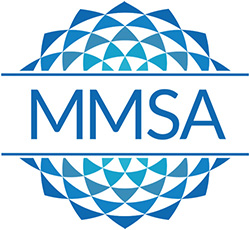The Reach Center, a joint project of the Maine Mathematics and Science Alliance (MMSA) and the Maine School of Science and Mathematics (MSSM), brought together dozens of experts for a design conference February 8-10, 2012. The purpose of the design conference was to collaboratively develop STEM intensives that will deeply engage Maine students in science, technology, engineering and mathematics.
The conference concluded with a listening session attended by distinguished Maine education, business and community leaders. The attendees, who are education experts from Maine and around the country, made recommendations that will help the Reach Center achieve its goal of engaging thousands of Maine students in science and math related activities.
The number of people who volunteered their time over the past few days is illustrates how important STEM education is to Maine’s future, said Tom Keller, co-director of the Reach Center. By taking this very collaborative approach, we are building this initiative to be successful and ensuring that we meet our ultimate goal of getting kids who are interested in science and math to grow into adults who are interested in science and math.
Some of the recommendations for The Reach Center include:
- Provide the connective tissue between the many excellent existing STEM programs in Maine for students in grades 5-12
- Develop an online clearinghouse of STEM opportunities and act as a resource for students seeking additional opportunities in STEM, including collaboration with the University of Maine EPSCoR and others
- Tie together consecutive experiences over several years to foster and build upon individual student interest and enthusiasm for a specific STEM topic
Based on the recommendations gleaned from the conference, the Reach Center will launch a statewide slate of outreach efforts in the spring.
Participants in the working conference, which took place at the Portland Harbor Hotel, took part in small discussion groups asked to design model criteria in areas such as marine technology/ocean studies, biotechnology, and energy/sustainability/environment. Sessions focused on building the various elements of hands-on programs as well as ways to measure outcomes. The groups also emphasized virtual learning opportunities and ways to connect with students through social media.
As far as we can tell, no one else is doing this anywhere else in the country. This conference was about getting a lot of very bright people in one room, downloading their collective expertise, testing ideas against experiences and, ultimately, creating a pathway for thousands of Maine youth to get involved with science and math programs, said Jerry Pieh, co-director of The Reach Center and chairman of the board of the Maine School of Science and Mathematics. With input from a group of this caliber, we will get the students involved, keep them engaged, and ultimately enhance the STEM workforce in Maine.
Those participating in the conference represented various organizations including Foundation for Blood Research, FIRST Robotics, University of Southern Maine, Maine Mathematics and Science Alliance, Maine Department of Education, IEEE of Maine, Expeditionary Learning, Casco Bay High School, Lesley University, University of Maine System, Island Institute, Illinois Math & Science Academy, Gulf of Maine Research Institute, Carnegie Museum of Natural History, King Middle School, Chewonki, Maine EPSCoR, University of Maine Cooperative Extension, Maine School of Science and Mathematics, KIDS Consortium, Massachusetts Institute of Technology, National Science Foundation, Harvard University, Deer Isle-Stonington Science Center, The Jackson Laboratory, Boston Museum of Science, American Psychological Association, The Concord Consortium and Efficiency Maine.
About The Reach Center: Created by a $3.2 million grant from an anonymous Maine benefactor, the Reach Center is a project of the Maine Mathematics and Science Alliance in collaboration with the Maine School of Science and Mathematics. The goal of the Center is to challenge Maine students in grades 5-12 who demonstrate an uncommon enthusiasm for math and science and help to connect them with opportunities to learn new concepts in science, technology, engineering and mathematics.


